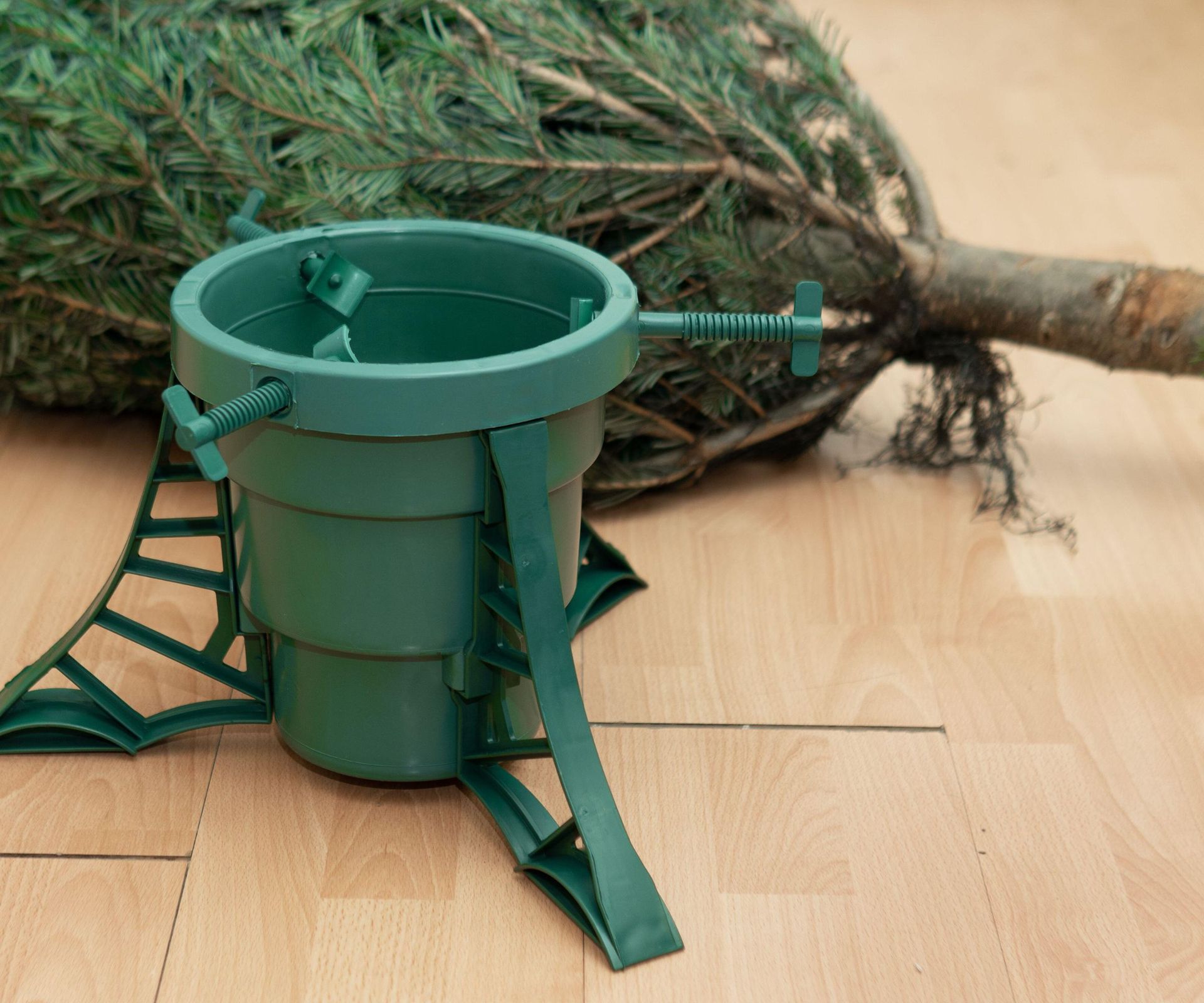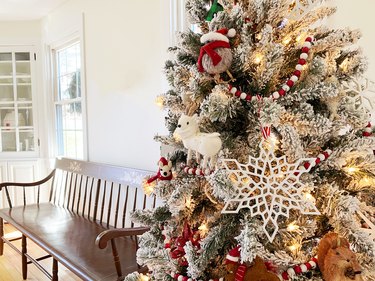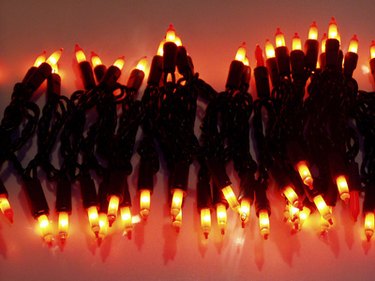Everyone knows that the holiday season doesn’t really start until the Christmas tree is up, so sorry to the Macy’s Thanksgiving Day Parade.
Getting a real Christmas tree is hard work, but it’s worth it because every time you come home, you can smell the fresh, piney tree. Even if it’s a family tradition, putting a tree on your car, carrying it inside, and setting it up is a lot of work. Also, taking care of a real tree is more work than taking care of a fake tree, which won’t leave needles all over the floor.
But theres no substitute for the smell of a real, live Christmas tree in your living room. So its disappointing when the odor starts to fade before Santa has even come down the chimney. Some trees can stay inside for up to eight weeks after being cut down, but not this year. Here are some tips to keep that holiday, piney smell going until January.
One of the simple joys of the holiday season is having a fresh Christmas tree filling your home with its delightful pine scent. But sometimes, that iconic evergreen fragrance seems to be missing from your tree. If your Christmas tree lacks that nostalgic, woodsy aroma, there are several possible reasons why.
Factors That Influence a Christmas Tree’s Scent
The scent profile of a Christmas tree depends on a few key factors
Tree Species
Not all fir trees are created equal when it comes to fragrance. Some varieties are more strongly scented than others. The most fragrant species prized for their rich pine scent include:
-
Balsam Fir – Has a refreshing, crisp, clean aroma.
-
Fraser Fir – The most popular Christmas tree offers a mildly sweet, spicy scent.
-
Noble Fir – Noted for its tangy, citrusy fragrance with hints of orange and tangerine.
-
Douglas Fir – Emits woodsy notes of pine needles and subtle floral tones.
Tree Freshness
A fresh cut tree will have the strongest aroma. As a tree ages after being cut down, it loses moisture and starts to dry out. This causes the piney scent to dissipate and fade over time. Old, dried out trees tend to have little to no fragrance left.
Tree Health
A vigorously growing, healthy tree will produce more fragrant pine oils naturally. Needles should be flexible, green and intact rather than brittle, dried out or falling off. Don’t expect much scent from a neglected tree.
Why Your Christmas Tree Might Not Smell
If your tree seems lacking in the smell department, here are some common reasons why:
Improper Storage
If a pre-cut tree is not properly cared for after harvesting, such as being left to dry out or kept in warm conditions, it can lose its fresh, sappy aroma even before it gets to your home.
Age or Dryness
Older trees and those that have dried out either before or after setup in your home tend to have weak scents. As moisture evaporates, so do the pine oils that create the scent.
Species
Some firs like the Douglas and concolor fir have more subtle aromas than strongly scented trees like Fraser and balsam fir. If you chose one of the more mildly scented species, it simply won’t smell as strongly.
Location in Home
If your tree is placed near heating vents, fireplaces or in sunlight, the heat and dry air can accelerate moisture loss, draining your tree of its fragrance.
Lack of Water
A neglected tree that isn’t getting sufficient water will quickly dry out, taking its scent with it. Be diligent about checking and replenishing the stand water daily.
Household Odors
Strong cooking, pet or other smells in your home can overpower and mask the more delicate pine aroma.
How to Freshen up Your Christmas Tree Scent
If your tree has lost its special scent, try these tips:
-
Mist the branches with water occasionally to replenish moisture.
-
Place bowls of water near the tree to add humidity to the air.
-
Move the tree away from heat sources like fireplaces or radiators.
-
Switch to a fragrance-boosting tree stand designed to keep trees hydrated.
-
Sprinkle the branches lightly with cinnamon for added seasonal spice.
-
Decorate with pine cones and boughs for extra evergreen essence.
-
Add Christmas tree-scented candles, diffusers or room sprays.
-
Keep pets away from the tree, as animal odors can overtake pine.
-
Make sure the tree has a fresh cut and stays well watered.
The nostalgic evergreen aroma is part of what makes a real Christmas tree so special. With proper selection and care, your tree can fill your home with that magical pine-kissed scent all season long. Follow these tips to troubleshoot, revive and enhance your tree’s natural fragrance.
How to preserve the smell of the Christmas tree
It’s important to keep the tree from drying out too quickly if you want the smell of a fresh Christmas tree to last longer. Therefore, the first step is to pick a healthy tree that doesn’t spray needles all over the ground when it is dropped from a short height.
Keep the bottom of the trunk from drying out before you put the tree into its stand. Sometimes, the Christmas tree vendor will trim the trunk before you take it home. But as soon as the wood is cut, sap will start to leak out and harden on it. That hardened material will keep the tree from absorbing the water you put in your tree stand. Plan when you buy the tree so that you can get it home and water it within a few hours of the end being cut. When you bring the tree inside, you can also cut off another inch from the bottom of the trunk if you have a handsaw and know how to use it safely. ).
If you live in a cold place and your Christmas tree was outside before you bought it, you might need to let it slowly warm up before bringing it inside. If you don’t, the sudden change in temperature will make the drying process go faster. For a few days, put it in a garage, shed, or covered porch to get used to warmer weather. Make sure to keep it in a bucket of water at all times to keep the sap from setting on the trunk.
Why Christmas trees smell
Ever wondered what, exactly, is responsible for that unmistakable woodsy Christmas tree smell? Quick science-lesson time!
Pine trees, spruce trees, Douglas firs, balsam firs, Fraser firs, and other fir trees are all coniferous trees, and they all make oleoresin. This substance helps repel pests and contains chemical compounds called terpenes. When terpenes evaporate, they give off smells. This starts to happen as soon as you bring your tree inside. These evaporating terpenes are responsible for the Christmas tree scent.
Different trees have different types of terpenes, which is why not all trees smell the same. Some common terpenes are pinene, which smells like pine, limonene, which smells like citrus, and camphene, which smells like camphor.
Set up the tree away from heat sources
Heat speeds up the rate at which your Christmas tree dries out. This will keep the woodsy scent of the tree going for longer. Let the terpenes evaporate as slowly as possible. Find a spot that isn’t near any heating vents or gets a lot of direct sunlight.
Never set up a Christmas tree anywhere close to a space heater, fireplace, electric heater or other heat source. This isnt just a matter of preserving the trees odor, but preventing a catastrophe. Nearly one-fifth of indoor Christmas tree fires are caused by some sort of heat source, per the National Fire Protection Association.
Why Does Your Christmas Tree Smell So Dang Good?
- The Ultimate Guide to Growing Strawberries in Raised Beds - August 8, 2025
- No-Dig Garden Beds: The Easiest Way to Grow a Beautiful Garden - August 6, 2025
- How to Protect and Preserve Wood for Raised Garden Beds - August 6, 2025




